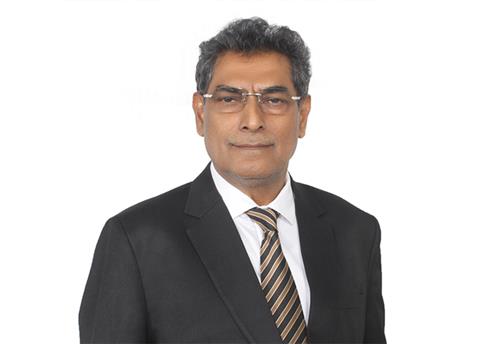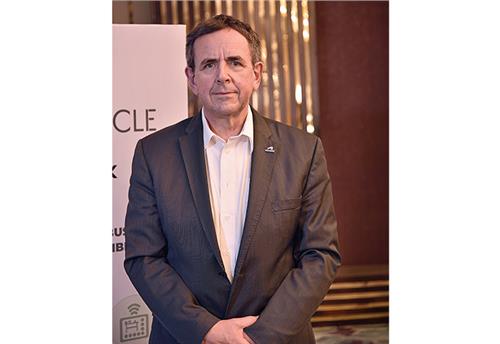Martin Schwenk: ‘Our new retail strategy is a huge paradigm shift and a very good model for the premium segment.’
Schwenk is hopeful of a good recovery in the second half of 2021, details the 15-model assault and exploring potential for a CKD electric car for India.
Mercedes-Benz India’s Managing Director and CEO lays bare the real dynamics of the new ‘Retail Of The Future’ strategy, why he is hopeful of a good recovery in the second half of 2021, the 15-model assault and exploring potential for a CKD electric car for India.
Was Covid a trigger to introduce the recently announced dynamic shift in retail strategy?
It’s a long-term plan we created two years ago, and Covid rather delayed it. Overall, the plan is to move strategically to create a win-win for our customers and dealers, who will now be called franchise partners.
There’s also a benefit for us as we can clearly set the price and discounting, while also optimising the market in terms of bringing transparency. When we had looked into this model already implemented in Sweden and South Africa, we felt it would be a suitable approach for India as well to address quite a few systemic issues in the market.
What back-end IT and compliance projects are you working on to seamlessly execute this strategy?
At the end, any offer will come out of a sales transaction system, which means we would need an integrated system that is able to manage inventory, logistics, offers and also handle actual offer-and-contract documents generated between customers and Mercedes-Benz India.
This is quite a substantial change compared to the current IT infrastructure, wherein we are limited to executing only wholesale transactions. The new retail system would also need to seamlessly work by conforming to the specific tax regulations of every State as well as GST compliances, which doesn’t make things easier. This is also one of the reasons in our delay as Covid slowed down the entire process.
How would it allow you to do better forecasts and production planning?
The new approach will allow us to have a detailed understanding of the inventory and also in terms of planning and forecasting production as we will get better data directly from the market. We will also put a stronger focus on retail in the planning process, and try to leverage the clearer understanding of what is happening in the market.
While not everything will start happening immediately, I believe, over time, we will be able to optimise our inventory management by having a better visibility of demand for a product in the market. I am quite certain that industry experts would understand the potential this model has in store.
In a sense, would you bypass the existing dealers to sell vehicles directly to customers?
We don’t have a plan to deliver a car directly. We are not bypassing the franchise partners and the ROTF (Retail of The Future) format would not be possible without them. They continue to be the prime representation of the brand in the market and will continue to facilitate the entire purchase journey. Complementary to that, we have the online representation which also exists and is not there to compete with the franchise partners but to complement them.
They will also be remunerated for a car being sold from the online channels as we believe that a customer is not likely to be online 100 percent of the time. There has to be a balance between online and offline. In the end, we don’t want to compete against the network. We have the strongest dealer network in the luxury segment in India and it is one of our competitive advantages.
Will ROTF come associated with some logistical challenges and will a customer be able to get a car home delivered at a remote location?
It is also the case even today and there is no change as such. Within the franchise partners, there is a regional allocation to service the remote areas through online sales as well as arranging test drives and services at the customer’s doorstep.
In terms of logistics, of course, any change in the process brings a challenge in itself, but we are looking at it as an opportunity to optimise inventory, and to some extent, we should be able to ship cars to any franchise location in the country within a few days of getting an order.
What we need to avoid, however, is multiple shipments to save costs as well as avoid the risk of damage during transit. Therefore, our job would be to have the right mix of vehicles at franchise partners, and supply the ones which are not readily available, either directly from the plant or from other showroom locations across the country. With a better prediction of demand, and better matching of demand-supply across the market, we will try to minimise delivery lead times as well.
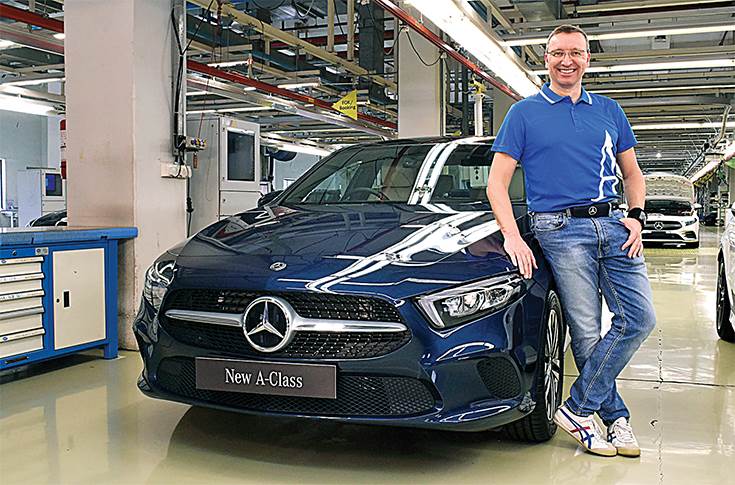
How will the Mercedes-Benz India franchise partners be incentivised to push sales with the new retail dynamic?
Instead of the current dealer margin on every unit, they would now get a commission on every sale. This would cover their cost of operating the showroom, remuneration of the sales staff and on top, also have a profit margin. It is a bit lower than the per-unit margin but is strong enough to make them more profitable than what they are today. Since they would not have an inventory cost or the cost of offers to dilute their profitability now, we are confident that they will be able to make better profits.
There will also be a target-oriented component to the commission, which means that the franchise partners would have sales targets and they will be evaluated based on their performance. Overall, we have done an extensive cost analysis with our franchise partners, jointly reviewed the cost base and accordingly, we have devised the commission that would give them suitable and good returns over time.
Do you think this model will become challenging as you gain more scale in India? Could mass-market players also look at it?
Overall, it’s a model which is not limited by numbers. It will have similar advantages even if we did quite a bit more volumes. I don’t see any limitations as to why volumes could be a limiting factor to the success of the ROTF model.
I believe it’s a huge paradigm shift and I would not be able to assess the position of mass-market players. So, even though a lot of underlying principles are the same, I would like to reserve my advice.
It is a theory for everyone at the moment, and both premium and mass-market brands would be keeping a close eye as to how it pans out. Having said that, I am personally convinced that it is a very good model for the premium segment.
Mercedes-Benz India recorded strong 34 percent growth in Q1 this year. What is your take on H1 and CY2021 after the second Covid-19 wave?
Compared to last year, we should still be able outperform in H1 as April 2020 was a complete washout. We are gradually seeing restrictions getting lifted across the country, although the South is still lagging behind the North and West.
I expect to see further stabilisation over the next two to three weeks with more markets opening up. So, I am quite confident that we will come back relatively quick.
Moreover, if the last year teaches us something, I think there’s a real chance over the next six weeks to come back to a sales phase which is pre-second Covid wave, and similar to Q1. Also, if we look beyond automotive and at the GDP prognosis, we don’t see the drastic crashing of numbers this time around that we had seen a year ago. A lot of our customers were scared about their businesses in the first wave, but most of them saw a good recovery in Q4 of CY2020.
So, despite Covid hitting harder in the second wave, there’s more confidence in businesses and the economy. I expect that customers would also come back quickly armed with this confidence. We have a good order book based on a number of new models, we are also seeing inquiries come in, and I am hopeful of a good recovery.
Having said that, one never knows what next could happen in Covid, but if things stabilise around October-November, we should be able to outperform 2020 as well.
What challenges do you foresee as you restart operations, particularly on the semiconductor shortage front?
We haven’t had any significant impact of the semiconductor shortage because of our CKD business model in India. But there have been some setbacks like availability of containers, air freight and the Rupee not strengthening against the Euro, which is the reference currency for us. So, that puts pressure on the viability of products as well as production.
Since we are observing ramp-up conditions because of the new models which will also require strengthening the number of people as well, we have vaccinated a vast majority of our permanent employees as well as contractual workers to get additional confidence and stability in day-to-day operations.
There is a high waiting period of up to 10 weeks for some of the SUV offerings, particularly the GLE. What countermeasures are being taken?
It is because of a new model portfolio, and because of the fact that we are only producing partially. With every unlock guidelines, we are trying our best to ramp up production but there are still some restrictions. I am hopeful that we can ramp up to fulfil the demand on our bigger SUVs — the GLS and GLE — which are very much asked for. But we will not be able to completely eliminate this challenge, at least over the next few weeks.
With 13 CKD models, is there a plan to enhance the production capacity at the Chakan plant?
The factory can easily produce 20,000 units every year, so there’s no immediate need for additional capacity at this point. However, we continue to invest in model-specific assembly equipment but that is not capacity-expansion investment as such.
You have outlined introduction of 15 models in 2021. Do you think the latest ones will help revive the mood of the market?
What we have also learnt from last year is that good new products can create a little bit of positivity when the unlock phase begins. That’s why we are continuing to launch vehicles, despite some of them, like the
GLS Maybach, not being broader-mass products.
But they help to establish the fact that not only the brand but the business is also coming back.
New launches help faster revitalisation and we will continue doing so. We have not made any changes to our plans for this year, though we have maintained caution that there could be some unexpected delays.
What are your broad plans with the all-electric EQ brand in India? Are you testing the waters with the initial model?
We continue to review every model from the Mercedes-Benz global electric vehicle portfolio and assess what makes sense for the Indian market.
The acceptance and experience with the EQC, both within the network and among customers, is definitely a guiding star for us. We will further follow its introduction in the main metro cities to expand its availability in more markets.
Overall, we believe that EVs have a good future and we would look into which car we bring and how we do that — whether we can build it locally or not.
So, nothing is really decided as this stage, but the good part is that we have to decide based on what the market is doing because the portfolio is continuously expanding. One has to see if it hits the sweet spot with the Indian customer’s desire and price point.
Do you see scope for localisation of EV technology in India?
Technically speaking, on our low-scale volumes, it is possible that it makes sense on some of the vehicles if we see enough of demand to the tune of a few hundred cars every year. That could allow us to establish a similar CKD operation as we have today for the conventionally-powered models.
We have not made this decision as it also needs a clear understanding about what the market will require from us, but in principle, there is no reason why not.
This interview was first published in Autocar Professional's June 15, 2021 issue.
RELATED ARTICLES
‘We believe there will be demand for ICE way beyond 2050’: Arnd Franz, Chairman and CEO, Mahle Group
Arnd Franz, CEO of Mahle Group, is optimistic about the company’s expansion in the country — especially with ICE vehicle...
BRANDED CONTENT: 'We aspire to be among the leading sensors and electro-mechanical products manufacturer'
P. Parthasarathy, Founder & Managing Director, Rotary Electronics Pvt Ltd shares the company's commitment and vision to ...
‘Big opportunity for startups lies in products in India’: Detlev Reicheneder
As electrification levels the playing field, the focus on tech and R&D to bring innovative products is the mantra for st...





 16 Jul 2021
16 Jul 2021
 5692 Views
5692 Views



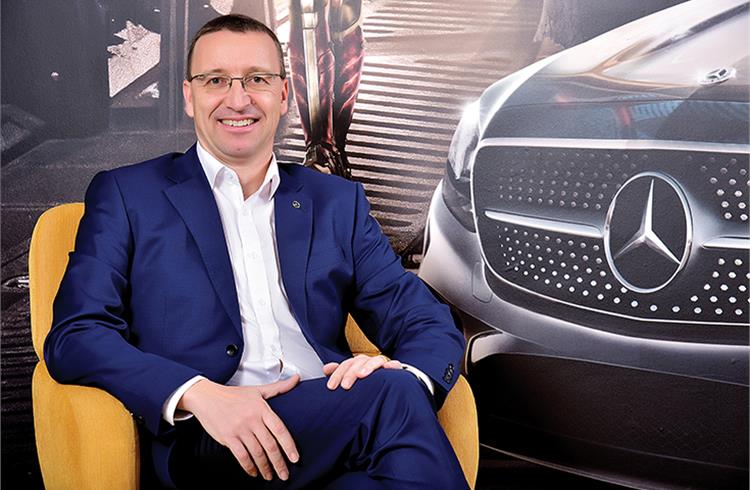
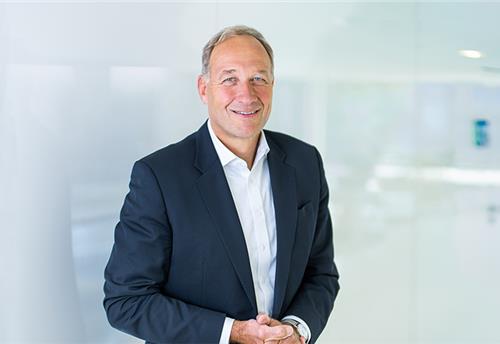
 Autocar Pro News Desk
Autocar Pro News Desk

